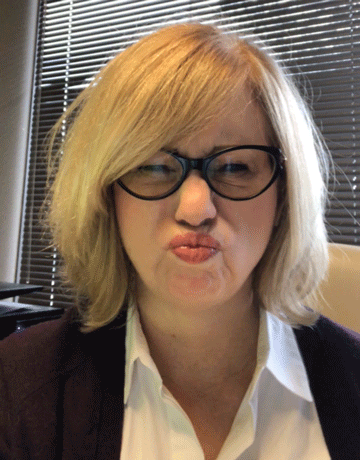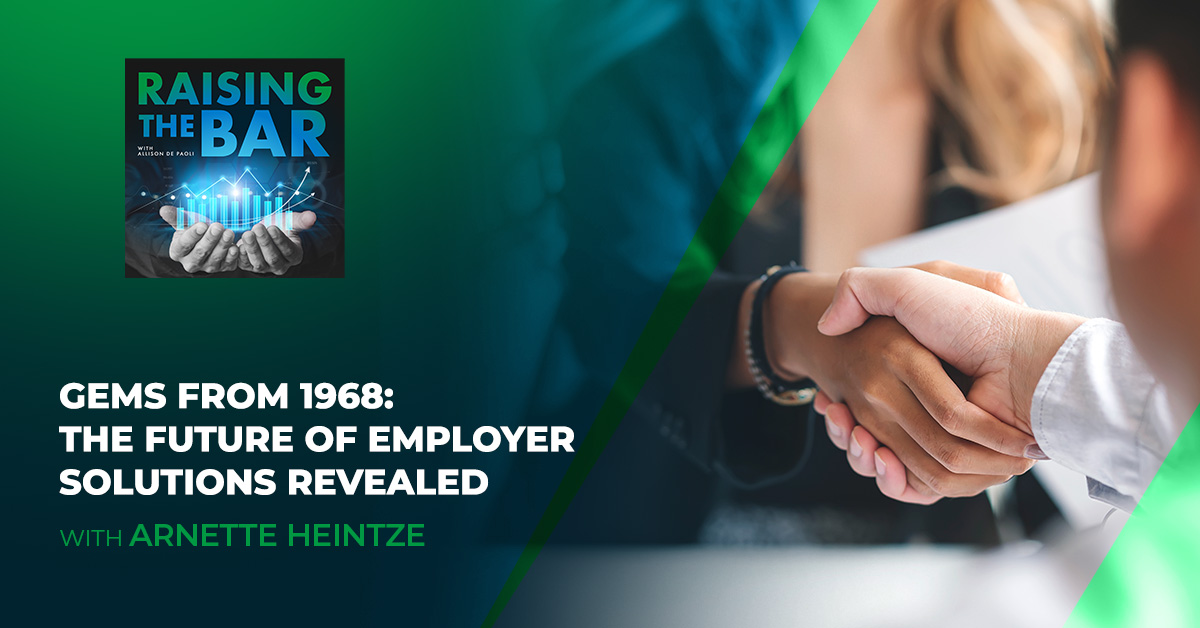
Embrace the transformative power of history. From the pivotal year of 1968 until now, gain wisdom from the earlier pioneers, elevate your own journey to new heights, and unleash the boundless potential that dwells inside you!
Today, I sit with Arnette Heintze, S2 Verify co-founder and a trailblazer who has left an indelible mark on the business landscape. Arnette’s journey is nothing short of fascinating, spanning all the way back to the pivotal year of 1968. Together, we explore the challenges and triumphs that shaped his remarkable career and discover the lessons he has learned along the way.
But that’s not all. Our conversation with Arnette will also shed light on an exciting development in the realm of employer solutions. From streamlined processes to enhanced efficiency, Arnette and I will share invaluable insights on how this groundbreaking technology can transform your organization. Join us as we uncover the secrets behind Arnette’s success, from his early experiences to his latest ventures.
Listen, learn, and let’s raise the bar together!
—
Watch the episode here
Listen to the podcast here
Gems From 1968: The Future Of Employer Solutions Revealed With Arnette Heintze
Welcome everybody to the next edition of Raising the Bar, where we talk with business leaders, CEOs, CFOs, and founders who have raised the bar in their professional lives. My guest, Arnette Heintze, has certainly done that. He has quite an interesting background. We’re going to talk about all things that happened even back in 1968 all the way to what S2Verify can do for employers now. Arnette, thank you for being with me.
Allison, thanks so much for having me. I’m looking forward to helping you raise the bar here.
Thank you. I hear that LSU accent now. You have such an interesting journey for me. You graduated from LSU in 1968. You went to law enforcement and then you ended up with a Secret Service. You have quite the career with the Secret Service before pivoting into private security. How did that all happen?
It does go back to 1968. I was thirteen at that time, so it was June 6th, 1968. My father had retired from the Marine Corps. He brought our family down to South Louisiana to raise us. I was out cutting grass at my summer job and I came home that evening. Every evening, my father watched the Walter Cronkite Evening News. I remember coming in that day and I heard Walter Cronkite say, “The president has dispatched the Secret Service to protect the remaining presidential candidates.” I didn’t know what Secret Service was at all. I had never heard of them in my life so I ran to the World Book Encyclopedias, those little white beige and green encyclopedias that many people had that my mother had purchased for the family.
I looked up Secret Service. I read that and I said, “That’s what I want to do in life.” I knew on that day that’s where I wanted to focus my attention because I felt a calling to it. Fast forward, I met my first Secret Service agent in 1971. He was married to my best friend’s older sister in high school. I spent Christmas Eve talking with him about the Secret Service. He was telling me about traveling around on Air Force One and carrying machine guns. I said, “That’s exactly what I want to do.”
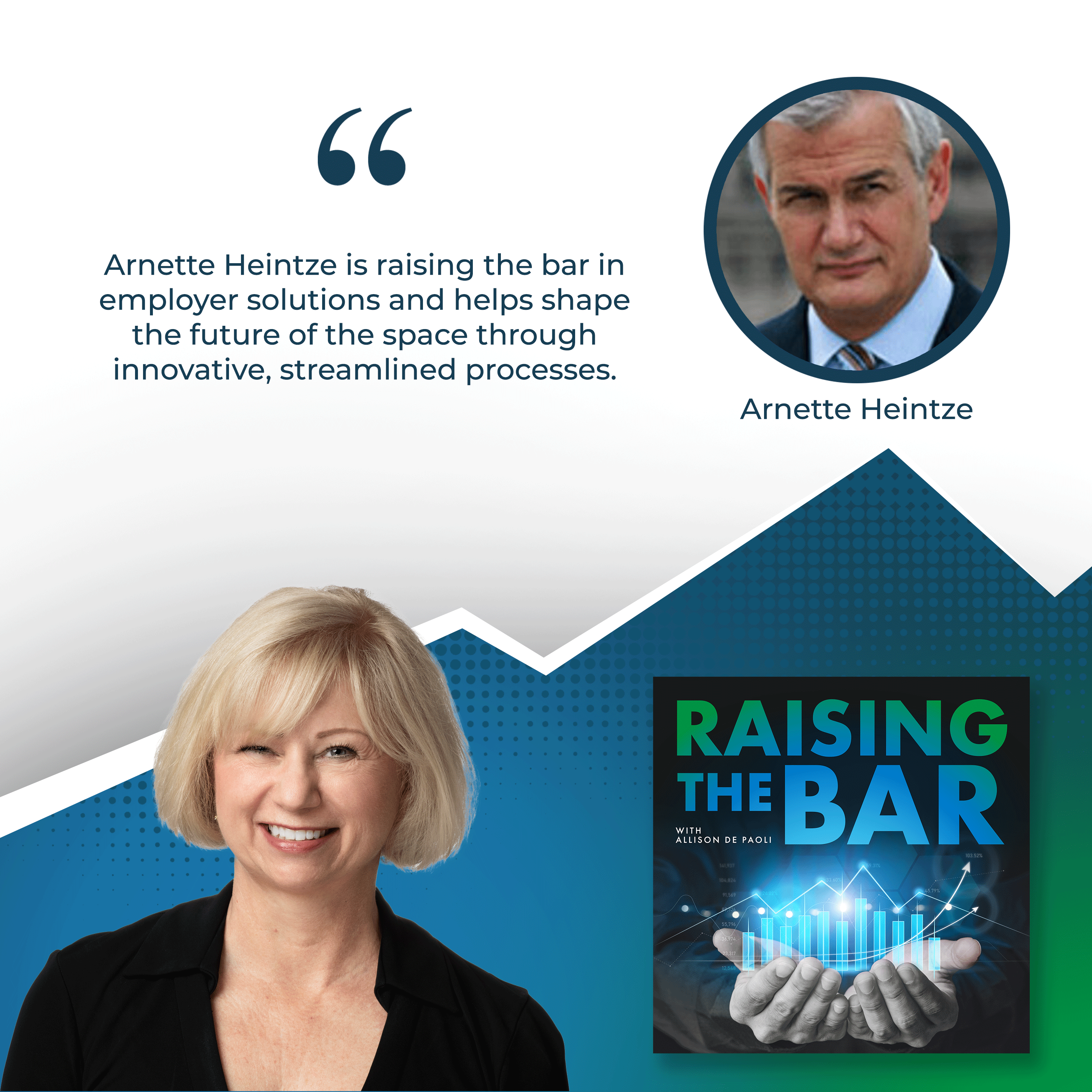
I finished high school in ‘73 and then went on to LSU. At that time, I had a cousin who was a Sociology professor at LSU. He said, “The law enforcement program is new and starting. I would suggest starting another curriculum.” I started an International Trade in Finance and almost flunked out of college. I said, “Regardless of how advanced the law enforcement program is, I’m going to go back into that.” I switched my major and had a wonderful time for the next three years at LSU. I finished with a Bachelor’s degree in Law Enforcement. At that time, President Carter was in office and the interest rates were 21%.
There wasn’t a lot of hiring in the Federal government. In talking with some mentors, they suggested I go to local law enforcement, so I did that. I covered the ranks of local law enforcement. I spent thirteen months as a Baton Rouge City police officer. That was my first job out of college. I went on to be an investigator with the Louisiana Attorney General investigating Medicaid fraud, and then onto the state police. I had a fabulous career with the state police where I had decided if I didn’t get called by the Secret Service by the time I was 28, I was going to stay with the state police.
What was the magic number of 28?
I thought my life was moving forward and I was having so much fun with the state police. I was 1 of 45 detectives working on some tremendous cases. I thought, “If I don’t hear from them, I’m going to stay with the state police.” A guy named Jimmy Taylor called me two weeks before I turned 28 and offered me a job. Jimmy was the special agent in charge of the Secret Service in New Orleans. If anybody has seen the assassination attempt of Governor George Wallace when he was running for president, there was an assassin by the name of Arthur Bremer. Jimmy was the agent in charge of that detail. You could see him swatting down with his arm to grab the gun after he shot Governor Wallace. That’s the gentleman that hired me in the Secret Service.
I went on to have a twenty-year career there. I will tell you other issues that I can track that influenced my career. It also involved the presidential assassination attempt on President Reagan. That was April 30th, 1981. That brought Congress to the point where they threw tons of money at the Secret Service and said, “You’ve got to hire more.” I was in that very first big group of agents that got hired so that impacted my career. The Secret Service was a tremendous career. One of the key strengths of the Secret Service is the way they approach the job. It’s with a prevention-oriented mindset and methodology. It’s to stop bad things from happening.
There is a way to be secure about everything in life. You take an acceptable risk. The world around protection is making sure you address the risk threats and vulnerabilities, which you could carry on to any business now, which is what you need to do in building a security strategy. I spent time in the Secret Service. I started off in New Orleans and opened an office in Baton Rouge. I went to New York City for a few years in the late ‘80s, and then on down to President George Herbert Walker Bush’s detail in December of ’90. I served on the President’s detail. It’s called The Presidential Protective Division. You’re part of the men and women that have to be within arms’ reach of the president at all times. We were there to cover, evacuate, and protect the president.
There is a way to secure just about everything in life. It’s all about taking an acceptable risk. Share on XDid you ever run with Mr. Bush at American University?
I don’t know whether I did at American University but I’ve run with him plenty in Washington DC.
He used to run at AU. We used to watch him every once in a while.
He loved to run. It was something that brought him freedom and peace of mind. It was something that he enjoyed doing so you have to be prepared. Of course, when you run with a president, it’s not like you’re out for a good exercise. You better be in shape because you’re carrying a gun and handcuffs, you’re wearing a bulletproof vest, and you got a radio on. There are a lot of things going on for the agents when they’re running with the president.
I served a few years on President Bush’s detail, then President Clinton gets elected. I served in the first two years of his administration. President Clinton was a very significant runner. He could fly. I spent the first two years of his administration before going to our headquarters where I worked in our liaison division. I ran our public affairs office for a number of years, and then I had the opportunity to go to the National War College as the Department of Treasuries representative to the War College.
How did you end up as the Department of Treasuries representative?
The director of the Secret Service at that time was a good friend of mine. His name is Lewis Merletti. Lou had always wanted to go to the National War College too. I was working closely with Lou at that time running our public affairs office. It was the time the independent council was investigating President Clinton. It was a very intense period of time. I literally worked 16 to 18 hours a day, 7 days a week, and that was month after month. I finally saw an announcement that the War College was preparing to receive candidates. Most of the candidates that go to the War College are military. Seventy-five percent are ranking military officers.
People are always very surprised to hear that it’s not 100%.
As a matter of fact, it never has been to my understanding. There’s always about a 25% civilian population, which is civilian Federal executives. You’re somebody that the Federal agencies have in their senior executive ranks. I went to the director and said, “I’d like to go.” He calls the Secretary of Treasury, Secretary Rubin at that time. He said, “I’ve got a candidate. I’d like to see him get selected.” I got selected. It was a year program and probably the most intense learning environment I’ve ever been in. It was tremendous. After twelve months, you finish with a Master’s in National Security Strategy degree. I finished that and then the Secret Service shipped me off to Chicago to run the Midwest Secret Service.
It was in the mid-’90s when I was in our public affairs office that I first had thoughts of getting into the entrepreneurial ranks. I started thinking about how could I bring the skillset I have from the Secret Service into a commercial environment and protect people, places, property, and assets. I started thinking about that. Lo and behold, another date becomes very prominent to me, which is September 11th. At that time, I picked up a journal and started writing the thoughts I had about creating a business. I still have that journal today. It’s amazing to see the number of things that I was able to take from that early journal and bring into a business environment.
It’s quite a successful business environment.
It turned out, and the reason it was successful is because of the people that raised their hands and said, “I’ll join you in this journey to see what we can do together.” It was all about the people. At that time, I was going to start it with all men and women from the Secret Service. I thought there was nobody else better experienced than that. One day, I realized there’s no diversity of thought, experience, and ethnicity to some level. It brought me to a colleague of mine who was the superintendent of the Chicago Police Department, a gentleman by the name of Terry Hillard. Terry had been calling me over some advice on some consulting opportunities he had. I finally said, “Terry, let’s go to lunch.”
I went to lunch, gave him my business plan, and said, “Let’s start this company. Let’s call it Hillard Heintze because Heintze Hillard didn’t sound right. I said, “You got the money. Let’s throw some money in there. I’ll open a checking account.” Each of us wrote a $3,000 check. That’s the only money that the company ever took. We built the company from that point forward. I don’t want to take credit for all of building it from there because there’s a lot of good luck that has to happen when you’re building a business. As long as you’re hiring great people that believe in your purpose, mission, and values, you can do miracles with that.
As long as you're hiring great people who believe in your purpose, mission, and values, you can do miracles with that. Share on XI want to focus on that for a little bit. What Hillard Heintze did was some remarkable work in helping police departments evolve a little bit. You talk so much about how that all comes down to leadership and communication, and how you helped some police departments that were in some trouble evolve into focusing on leadership, communication, and integrating more effectively with their communities. You’ve done that with S2Verify also. You’ve got awards for customer service and you’re doing background checks on people. Background checks are not always accurate, and you’ve got a great process for allowing people to defend themselves. Can you talk a little bit about your thought process there?
Thanks for asking that question, Allison. I actually got involved with a client of mine at that time. It was the nation’s largest background screening company. It was called ChoicePoint. I met my partners at S2 Bill Whitford and Jim Zimbardi. I was helping them network into my relationships around the country of global security programs. ChoicePoint was acquired by LexisNexis in about 2009. Bill called me and said, “I’m not going to stick around for the integration with this acquisition but if you’re interested, I’ve got some ideas on starting the company.” I said, “Great.” As a background screening organization, you have an obligation to ensure that you’re only giving information that is guided by the regulations and the Fair Credit Reporting Act, EEOC, and the FTC.
There’s a lot of governance over that aspect. S2Verify, through our team and experts that are conducting this work, we’ve built a fabulous reputation and is growing rather rapidly. We completed our first acquisition in the past year. We’re doing great things with social and digital media marketing. As you know, it was good and well because you were so generous with your time. You joined me on our podcast, which we focus in on the HR segment because human resources professionals are absolutely the primary consumer of the work that we do at S2Verify. We want to make sure we’re addressing their needs, we’re attentive to what they need, how they need it, and when they need it. We’re doing great work on timing. Most of our results are done within 12 to 24 hours. There’s some good work product there.
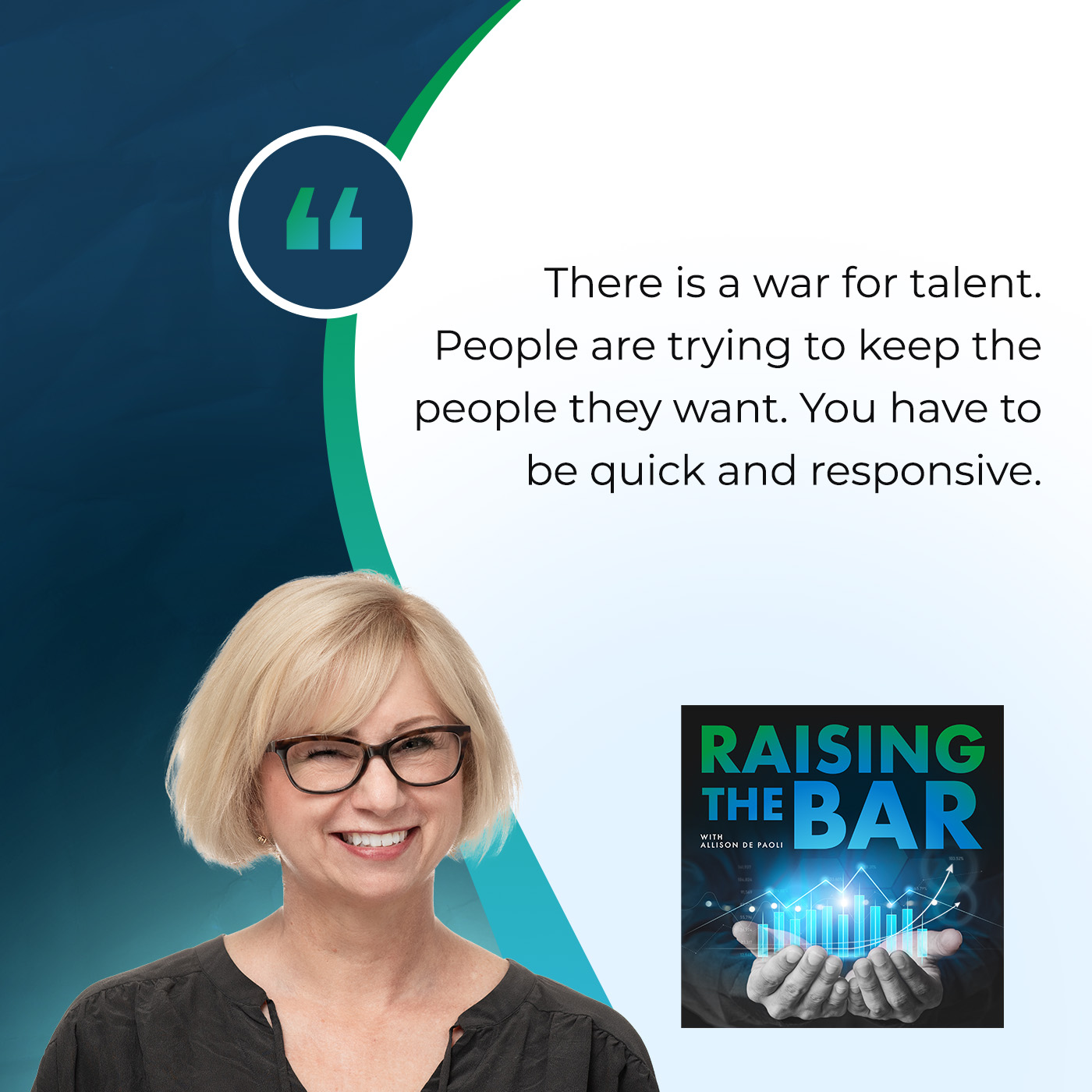
It’s timing for applicants in the war for talent. People are trying to keep the people they want and they’re trying to hire. I don’t have a client that is not hiring so you have to be quick and responsive. HR staff is typically run very lean. It’s important to be accurate and responsive. Also, to be able to assess the risk, there’s always a risk to bring somebody on.
If you hire an individual that has questionable character, integrity, and reputation, that could destroy your whole brand. You could be a multi-billion dollar organization, but one bad hire can have a significant impact on you.
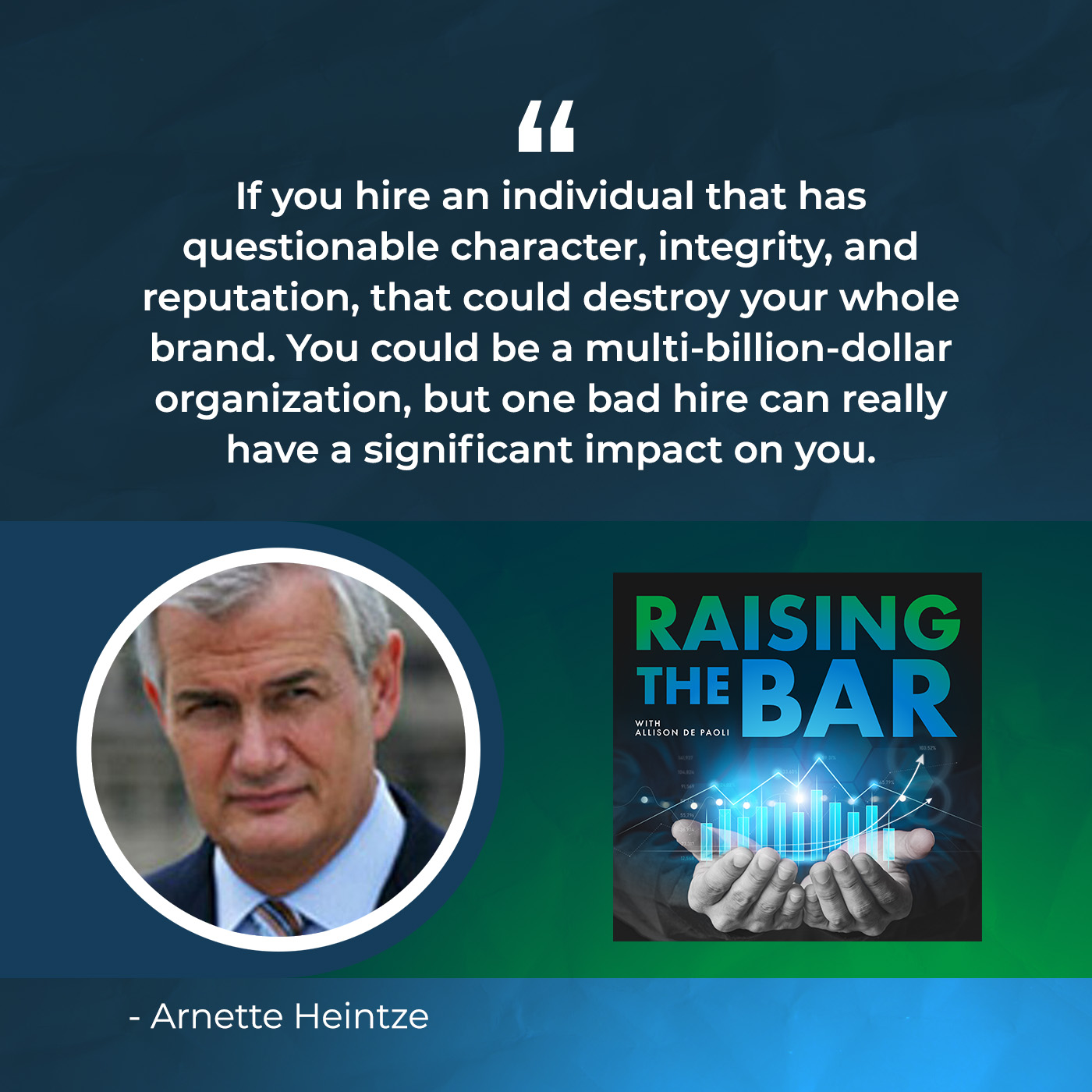
One of the things that you’ve done so well and you touched on it with digital marketing is figuring out the balance of technology and human interaction. Human interaction often gets lost nowadays. I feel a little old when I say that, but when there’s a challenge, a person would still like to talk to another person in a reasonable timeframe.
You’re so right on that point because any relevant organization doing background screening work has to leverage technology and process. One of the key differences for us is we’re leveraging some of the world’s best technology in gathering this information but we’ve got human experts that are interjecting themselves in that process and are verifying and substantiating the information we’re finding. Before any information is shared with a client, we’ve cleaned it. We’ve washed it out to make sure they’re getting the precise information they’re allowed to by law, and the information that relates to that specific individual that we’ve done the background on.
Also, that it’s accurate. When I was poking around your website in doing some preparation, you do have a very clear mechanism for somebody to dispute an issue in their background check. I don’t think that’s overly common.
It’s required by law but you’re right. Does everybody on their website say they do that? No, they don’t. It’s incumbent on the background screening company to make sure that they’re communicating with the individuals they’re doing backgrounds on that they have a right to review and challenge the information.
Your whole life has been spent in risk assessment and risk strategy. We love clients that understand risk because, in my world, the risk is calculated a little bit differently than in your world. There are things to be concerned about and things not to be concerned about. It’s fun for us to have those conversations. How do you best guide your HR clients who typically are very conservative in hiring decisions and assessment on what’s important and what’s not?
One of the first steps with the HR professionals in an organization is making sure they have a full understanding of how they’re going to make decisions. It’s not the background screening company making a decision whether somebody you’re hiring is good or bad. It’s the company and its internal decision matrix that they want to apply to not just all candidates but to individual candidates for specific jobs.
The rules and requirements that you might put around background screening for an individual that’s going to work in your finance department are going to be quite different than the ones you want to put maybe around your cleaning staff or support staff. It’s because you have a higher expectation that you want to make sure those that had the keys to the money are making sure that they have that good character integrity and reputation.
Do you have an opinion on allowing people to be stupid when they’re young? All I have to say is thank God the internet didn’t exist when I was 25. I’m pretty sure I’m not alone.
That’s a great question because people are going to make mistakes in life. The great news with background screening is that government leaders in organizations have put compliance rules and regulations and laws over this process, as well as individual states. Depending on the state you live in, you can either look back at 5, 7, or 10 years of criminal records. Not just criminal records but it’s got to be conviction information. The challenge that you have is some organizations think they can get information related to criminal arrest, but they can’t make decisions on that legally. In most situations, there are some exceptions in that area. By and large, it has to be conviction information.
I think that’s very important for people on both sides of that equation to understand.
To your question, the point that I was trying to make with that answer was an individual that makes a mistake when they’re 18 or 20 years old is going to be old news by the time they’re 27 or 28. That will be a thing of the past. Employers are going to be able to make decisions as they matured in life and became much more responsible citizens. Those are great regulations that help individuals protect their rights there.
One of the things that I hear in everything that you say, and I took it from our last conversation and I see it in some interviews that I’ve read about you and in some of my research, is that transparency is very important to you. We’re in this weird time where on the one hand, we want everything to be transparent, and on the other hand, we want nothing to be transparent. Can you talk a little bit about how valuable transparency is and how important it is to leadership?
Transparency is one of the critical elements that any leader needs to possess, but there are others as well like empathy. You’ve got to have a strong sense of empathy for individuals and be able to help them through difficult times. Transparency helps in the concept when you’re working with your teams. It doesn’t mean you need to tell them all the secrets that maybe you need to run behind the scene, but be honest with people about decisions you have to make in the organization, especially when it impacts the employee. I believe in a lot of transparency there. I’m not saying that you open the kimono and all of a sudden, everybody’s got all the information. You can’t run a business like that. You can be open and transparent and show some empathy in how you engage with your employees.
Transparency is one of the critical elements that any leader needs to possess. Share on XIt’s very important. We deal with organizations that have 20, 200, 500, 3,200 employees, and everything in between. What we’ve found is that the leaders are most open about what is happening, and it doesn’t mean you say everything, their businesses tend to run more smoothly and profitably. I do think there’s something to the cleaning person saying, “You have an issue over here,” and somebody paying attention to that because we get great ideas that way. We’re a much smaller team but we all are throwing it in the pot. We’ve found that works better for us.
That’s so true because any business is going to operate better. The more insight you gather from your team, the more perspective and opinions you allow into the process. It’s going to make you more informed. You can call it open door, you can have a 360, or however you want to phrase it, but allowing the thoughts, opinions, and perspectives, and your coworkers to flush up, where leadership can hear and pay attention to those issues that are critically important.
I reviewed some surveys for one of our clients and the feedback was remarkable and it’s candor. Some of it was so incredibly astute. That’s a huge gift that an employee can give you.
When you have employees that are recognizing that, it says volumes about leadership. It’s all you need to know about how companies run.
I agree with that. Is there any advice or guidance you would give an HR team in terms of new or best practices when they are doing background checks and when they are assessing risk? How important is it to stratify that process?
The critical piece is making sure the HR team has created that decision-making matrix. If you have an individual and you need to develop this matrix, you can have them developed as an organization as a whole on the broader level but also down to the specific job or function in the company. It actually makes it much more relevant because somebody that may have been arrested and convicted for DWI, there’s a number of individuals in our society that have arresting convictions for that, it doesn’t make them a bad employee but that’s a red flag that goes, “What might that person be doing for them?” If they’re in the transportation apartment, you might think twice about that.
It’s like, “What were the circumstances around that conviction?” It could be something as simple as the person was 21 years old. It was their college graduation and they were drinking that evening and they got stopped and arrested. Bad decisions on so many fronts there but it happens. If that individual is in the sales department, does that conviction exclude them from that opportunity? I can give an argument where it doesn’t necessarily exclude them. Once the employer fully understands the issues there, that’s how you make that decision matrix and understand, “How does that impact the company if we had that individual?” There are some fabulous people in this nation that have some minor discretions on their criminal records.
We will leave it there. That was a very good piece of advice and thank you for joining me. I know people will get a lot of value from this and I look forward to seeing you again soon.
My pleasure. Allison, I’m delighted to join you anytime. Thanks so much for having me.
Thank you. For those of you that are tuning in, if you’d like this episode, leave us a review or subscribe. It helps us to spread the word. We will see you next time.
Important Links
- Arnette Heintze – LinkedIn
- S2Verify


